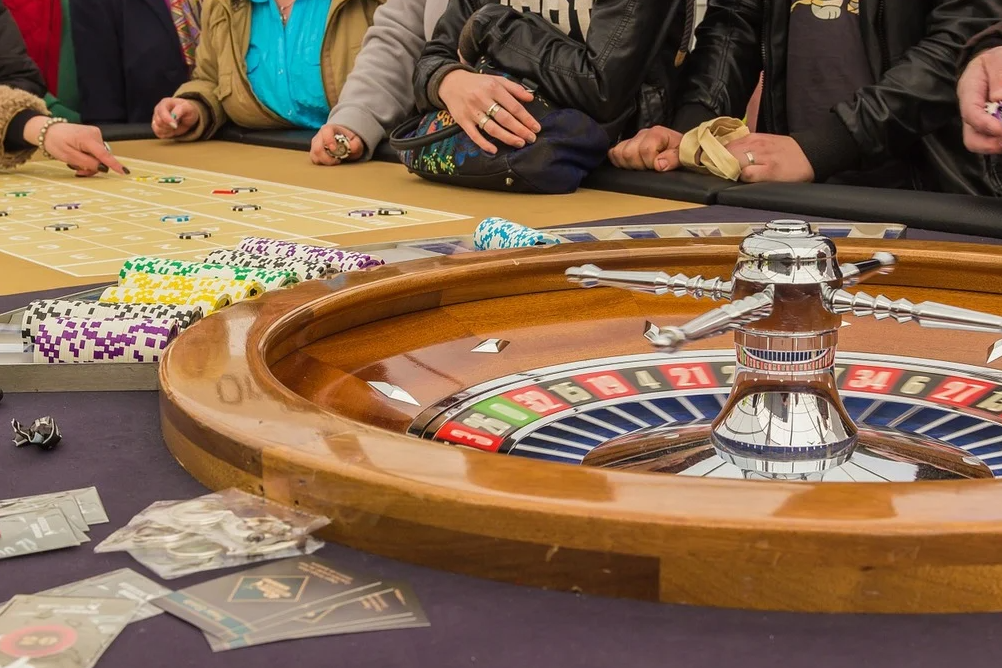Let’s have a Las Vegas party right here in Alabama! We’ll rent a hall, lock the doors, get out the poker tables and roulette wheels, and gamble the night away.
Throughout the night, a lot of money will change hands. But when the day breaks, there won’t be one more dime of actual wealth in the room than there was when we started.
This illustrates my point: Gambling doesn’t create wealth; it merely redistributes it, usually at the expense of the poor. Every dollar spent on a lottery ticket is one less dollar spent on groceries. Every job created at the casino is one less job at a factory. VictoryLand should be called LoserLand because for every big winner announced, there are many unannounced losers.
And the losers are usually those who can least afford to lose. Back in my high school and college days, I worked in a lumberyard in Sioux City, Iowa, across the Missouri River from South Sioux City, Neb., and across the Big Sioux River from North Sioux City, S.D. Iowa didn’t have legalized gambling at that time, but Nebraska had dog racing and South Dakota had horse racing. Every payday, lots of my coworkers would cross the Missouri to bet on the puppies in Nebraska or cross the Big Sioux to bet on the ponies in South Dakota. Almost invariably they would lose, and next week they’d complain that their kids didn’t have milk, that their electricity was going to be cut off, or that they couldn’t make their house payment. “This is stupid!” I remember thinking as a teenager, and I wasn’t even considering the morality issues!
My experience is far from unique. Studies repeatedly show that a disproportionate number of poor people gamble, and they spend a disproportionate amount of their income on gambling. As I note in my book, “Legalized Gambling: America’s Bad Bet,” a 1982 New Jersey study found that residents of low-income neighborhoods played the lottery in a proportion more than half greater than residents of high-income neighborhoods. Additionally, an Illinois study found that residents of the state’s 10 highest-income zip codes spent an average of $76 on lottery tickets, while residents of the state’s 10 lowest-income zip codes spent an average of $221. A more recent study by the Wisconsin Council on Problem Gambling reported similar conclusions.
The gambling industry knows this, and they plan accordingly. Prior to opening his Reno casino in 1946, Bill Harrah did extensive marketing research and found that his most likely clientele were low-income people. He therefore arranged a bus service to bring low-income people in from 31 cities and provided low-cost meals as an added incentive. While I was doing a radio interview on gambling in Atlanta, my host advised me that radio stations know the demographics of their audiences very thoroughly and that Georgia deliberately places its lottery ads on radio stations catering to the lowest-income segments of the population. They also concentrate their lottery billboards in the lowest-income neighborhoods.
If gambling is regressive in that it preys disproportionately upon the poor, then gambling taxes are equally regressive. And even if lottery income is earmarked for something like education – a sucker tactic often used to sell the lottery to skeptics – that often turns out to be disappointing, because it usually means education just gets less money from the general fund.
“We need to legalize gambling to drive out the illegal gamblers,” some say. “Would you legalize murder to drive out the illegal murderers?” I respond. In reality, when gambling is legalized, illegal gambling increases rather than decreases. Several reasons include:
When the state says gambling is legal, people assume that means gambling is moral as well.
The illegal gambling industry often offers better odds than the legal gambling industry, and they can do so because they do not pay taxes.
The illegals send “numbers runners” to pick up people’s bets, although the internet now makes this largely unnecessary.
Unlike the legals, illegals often extend credit – and have their own ways of enforcing payment.
Even if legalized gambling were good for business – and it isn’t – is it worth the problems it brings – impoverished families, links to crime, alcohol and drugs, the mob, and the rise of compulsive gamblers?
We expect to see a slew of gambling bills in this session of the Alabama Legislature. Let’s not gamble with the good life we have in Alabama! Tell your legislators to just say NO to all forms of legalized gambling.
Col. Eidsmoe pastors two rural Alabama churches, is Professor of Constitutional Law for the Oak Brook College of Law & Government Policy (obcl.edu), and is Senior Counsel for the Foundation for Moral Law. He may be reached for speaking engagements at eidsmoeja@juno.com. Those with constitutional issues may contact the Foundation at (334) 262-1245.
The views and opinions expressed here are those of the author and do not necessarily reflect the policy or position of 1819 News. To comment, please send an email with your name and contact information to Commentary@1819news.com.
Don’t miss out! Subscribe to our newsletter and get our top stories every weekday morning.










